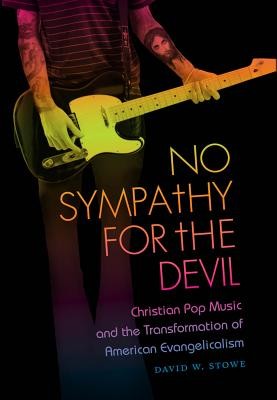
- We will send in 10–14 business days.
- Author: David W Stowe
- Publisher: University of North Carolina Press
- ISBN-10: 1469606879
- ISBN-13: 9781469606873
- Format: 16.2 x 23.6 x 1.8 cm, minkšti viršeliai
- Language: English
- SAVE -10% with code: EXTRA
Reviews
Description
In this cultural history of evangelical Christianity and popular music, David Stowe demonstrates how mainstream rock of the 1960s and 1970s has influenced conservative evangelical Christianity through the development of Christian pop music. The chart-topping, spiritually inflected music created a space in popular culture for talk of Jesus, God, and Christianity, thus lessening for baby boomers and their children the stigma associated with religion while helping to fill churches and create new modes of worship. Stowe shows how evangelicals' increasing acceptance of Christian pop music ultimately has reinforced a variety of conservative cultural, economic, theological, and political messages.
EXTRA 10 % discount with code: EXTRA
The promotion ends in 22d.00:24:30
The discount code is valid when purchasing from 10 €. Discounts do not stack.
- Author: David W Stowe
- Publisher: University of North Carolina Press
- ISBN-10: 1469606879
- ISBN-13: 9781469606873
- Format: 16.2 x 23.6 x 1.8 cm, minkšti viršeliai
- Language: English English
In this cultural history of evangelical Christianity and popular music, David Stowe demonstrates how mainstream rock of the 1960s and 1970s has influenced conservative evangelical Christianity through the development of Christian pop music. The chart-topping, spiritually inflected music created a space in popular culture for talk of Jesus, God, and Christianity, thus lessening for baby boomers and their children the stigma associated with religion while helping to fill churches and create new modes of worship. Stowe shows how evangelicals' increasing acceptance of Christian pop music ultimately has reinforced a variety of conservative cultural, economic, theological, and political messages.


Reviews